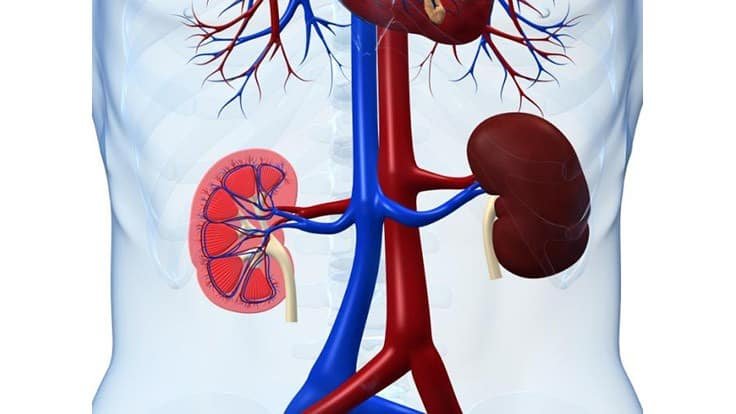Is a Urological Problem Making Your Life Uncomfortable?
Sexual dysfunction, kidney stones, incontinence, frequent urination, and many more are some of the urological problems that can be painful, uncomfortable, or even cause much more serious conditions. These diseases can be in men, women, or even children of all ages. Urological diseases may affect certain parts of the body which could be the urinary tract in females and urinary tract or reproductive organs in males. Dr. Shirley Bang, a female urologist Singapore, is offering life-changing treatments bringing more effective solutions for both men and women.
The process of urination is vital for human health care. This biological procedure focuses more on the urinary tract system which is responsible for removing urine out from the body. This system encompasses kidneys, bladder, ureter, urethra, and the reproductive system in males. There is a possibility that most of us have to experience urological problems at some point in time which could be due to aging, injury, illness, or birth defect. When any such issue comes up, one must seek advice and help from a reputable urologist in Singapore. An experienced urologist like Dr. Shirley Bang has specialized knowledge and skills regarding urinary problems of the male and female urinary tract as well as the male reproductive organs.
Common Symptoms of Urological Problems
Every problem has some symptoms that are enough to give you a hint that there is some problem in your body. Given below is a list of symptoms that specify there is a problem in the urinary tract and you need to visit a urologist. These include:
- A frequent need to urinate urgently
- Burning sensation or pain during urination
- Difficulty urinating
- Pain in your lower back, pelvis, or sides
- Presence of blood in the urine, known as hematuria
- Urine leakage
- Weak urine flow, dribbling
If you are a man and have the following symptoms, you should instantly see a urologist.
- A decrease in sexual desires
- A lump in testicles
- Trouble getting and keeping an erection
Some of the Most Common Urologic Diseases
Some several urologic disorders and diseases are common in both men and women. Given below is the list of some of the diseases identified as common. These include:
Urinary Incontinence
Urinary incontinence is a medical condition in which a person loses his/her control over its bladder. It results in the undesirable leakage of urine. In other cases, an individual may experience only minor leakage. The condition may be temporary or chronic, depending on its origin. The muscles supporting the bladder tend to weaken and then fail with age, which can lead to urinary incontinence.
The condition of urinary incontinence can be inconvenient and embarrassing, but it is far from unusual. There are so many reasons behind the condition of incontinence. A few of them include:
- Diabetes
- Diseases Including Parkinson’s And Multiple Sclerosis
- Enlarged Prostate
- Injury To The Spinal Cord
- Overactive Bladder
- Pregnancy or Childbirth
- Severe Constipation
- Urinary Tract Infections
- Weak Bladder Muscles
- Weak Sphincter Muscles (Muscles Supporting The Urethra)
In certain cases, lifestyle changes such as regulating fluid intake can be sufficient to address the problem.
Types of urinary incontinence
There are three general types of UI. You may experience more than one type at the same time.
Stress incontinence: It is activated by certain kinds of physical activity. For example, you might lose your bladder control when you are:
- Exercising
- Coughing
- Sneezing
- Laughing
These activities put a strain on the sphincter muscle that holds urine in your bladder. Stress can result in muscle releasing urine.
Urge incontinence: Urge incontinence happens when you lose control of your bladder after feeling an unexpected and strong urge to urinate. Once that urge hits, you cannot make it to the bathroom.
Overflow incontinence: Overflow incontinence can occur if you don’t fully empty your bladder while urinating. Later, you may have to face leakage of remaining urine from your bladder. This type of incontinence is known as “dribbling.”
Kidney Stones
Kidney stones are the crystals in the urine and small particles surrounding these crystals. These occur when minerals and other chemicals like cysteine and uric acid accumulate in the kidney as well as any part of the urinary tract. There are so many reasons due to which kidney stones are formed like Diet, excess body weight, certain medical conditions, and supplements, and medications. These stones can affect any part of your urinary tract from your kidneys to the bladder. It can be extremely painful to pass kidney stones, but they need to be recognized in a timely fashion. In some cases stones may be stuck in the urinary tract may cause urinary infection or other complications that may require surgery.
Symptoms of Kidney Stones
Generally, there are no symptoms caused until it moves around inside your kidney or passes into your ureters. If it gets stuck in the ureters, it may block the urine flow and cause swelling in the kidney and spasm to the ureter. This could be very painful. There could be some other symptoms that you may experience like:
- Severe, sharp pain in the side and back, below the ribs
- Pain that exudes to the lower abdomen and groin
- Pain that comes in waves and varies in intensity
- Pain or burning sensation while urinating
Other signs and symptoms include:
- Pink, red, or brown urine
- Cloudy or foul-smelling urine
- Urinating more often than usual or urinating in small amounts
- Nausea and vomiting
- Fever and chills if an infection is present
Pain triggered by a kidney stone may change. For instance, shifting to a diverse location or growing in intensity as the stone moves through the urinary tract. You must consult a urologist who can guide you on the treatment as well as kidney stones removal cost in Singapore.
Vasectomy
A vasectomy is a small surgery to block sperm from reaching the semen when ejaculated so that pregnancy can be prevented. When sperm do not enter the woman, she won’t get pregnant. Though men can still have an orgasm and ejaculate. An incision is made in the small tubes in the scrotum that carries sperm or they are blocked off, so that sperm cannot leave men’s body and cause pregnancy. It is a very quick procedure and required a small surgery in any clinic specialized in performing vasectomy in Singapore.
Types Of Vasectomies
There are 2 types of vasectomies. The incision method – in which the specialist makes cuts in your scrotum to reach two tubes which are known as “vas deferens”. He will remove a small piece of each tube, leaving a small gap between the two ends. Though the ends will be seared, they will tie each one off with a stitch. Stitches that you get will dissolve overtime to help the cuts close. When both vas deferens are cut, sperm can no longer reach your semen or leave your body.
On the other hand, No-Scalpel Vasectomy – In this process, no incision is made. The specialist will feel each vas deferens under your scrotum and use a clamp to hold it in the position. They will make a small hole in your skin, stretch it open, and get each vas deferens out. They will cut them, and then cap them up with searing, stitches, or both. No more stitches are required after the procedure. The term “vasectomy” comes from the tubes in your scrotum that is blocked during the process: vas deferens.
How Effective Are Vasectomies?
It is almost 100% effective. There are a few changes that the tubes can rejoin. In such cases, a pregnancy could happen. You have to get the follow-up test that checks on if everything is okay and when you can stop using another method of birth control just in case.
Why You Should Choose Dr. Shirley Bang?
If you are looking for an experienced urologist in Singapore whom you can consult for all the above-mentioned problems and other urological issues, then Dr. Shirley Bang should be your choice. She is a certified Urologist from the Singapore Medical Council and one of the few female urologists in Singapore. Earlier, she was working as a full-time Consultant in Tan Tock Seng Hospital.
Dr. Shirley’s subspeciality interest lies in the treatment of Urinary Incontinence, Overactive Bladder Syndrome (OAB), Neurogenic Bladder, Functional and Reconstructive Surgery of the Urinary System. She also performs surgical procedures for general urological conditions such as laser treatment for kidney stones and prostate conditions.
She was actively involved in introducing Percutaneous Tibial Nerve Stimulation (PTNS), a treatment for overactive bladder, while at TTSH in 2018. Along with this, she also managed both simple and complex urological cases daily along with running weekly urodynamics and video urodynamics sessions. Fluent in Cantonese, English, Malay, and Mandarin, Dr. Shirley Bang’s patient clientele is as varied as her range of urological medical services. Feel free to call her for appointments!





